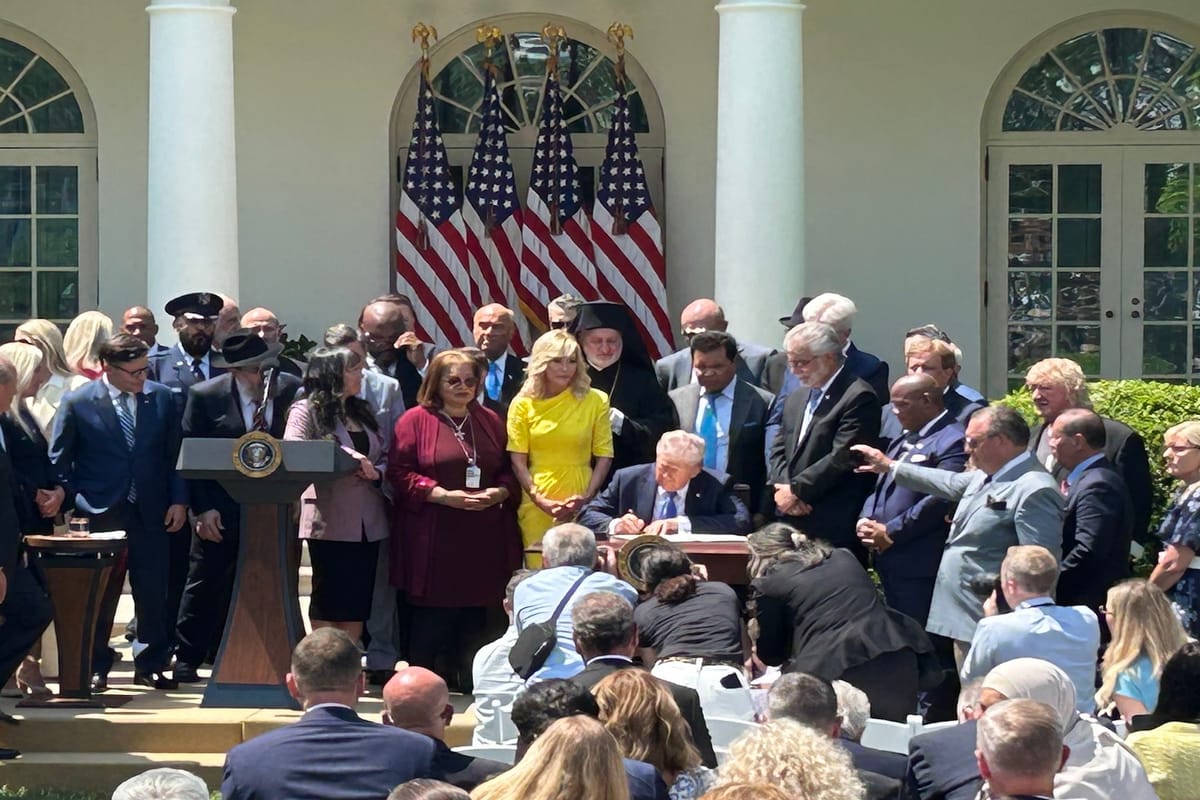

Protecting Faith in America
On May 1, President Donald Trump signed an executive order establishing the Religious Liberty Commission during a National Day of Prayer event in the White House Rose Garden. This move fulfills a promise to prioritize religious freedom, a core value for many Americans who see faith as central to the nation’s identity. The commission aims to safeguard the rights of believers and address perceived threats to religious liberty.
The event, attended by faith leaders from various backgrounds, highlighted the administration’s commitment to ensuring that religious institutions and individuals can practice their beliefs without interference. The signing took place amidst prayers and speeches emphasizing the importance of faith in public life. Trump’s action underscores his administration’s focus on restoring what many see as the foundational role of religion in America.
Leadership and Mission of the Commission
The Religious Liberty Commission will be chaired by Texas Lieutenant Governor Dan Patrick, with Dr. Ben Carson, former Housing and Urban Development Secretary, serving as vice chair. Other members include prominent figures like Bishop Robert Barron, Cardinal Timothy Dolan, Pastor Franklin Graham, and Pastor Paula White. Their task is to produce a comprehensive report evaluating threats to religious liberty, exploring ways to enhance protections, and examining the historical significance of religious freedom in the United States.
The commission’s focus includes critical areas such as parental rights in education, conscience protections, attacks on houses of worship, free speech, school choice, and the autonomy of religious institutions. ‘There’s never been a president who’s invoked the name of Jesus more than you,’ Dan Patrick told Trump during the event, reflecting the strong support from faith communities for the administration’s efforts. This initiative builds on earlier actions, like the establishment of the White House Faith Office, to ensure faith-based organizations have a voice in government.
Addressing Past Challenges
Trump has repeatedly highlighted what he describes as an ‘egregious pattern of targeting peaceful Christians’ during the previous administration. The executive order responds to these concerns by directing the commission to advise the White House Faith Office and the Domestic Policy Council on policies to protect religious liberty. The administration’s actions, including pardons for Christians prosecuted for peacefully demonstrating their faith, signal a commitment to reversing policies seen as hostile to religious believers.
At the National Prayer Breakfast earlier this year, Trump spoke about the importance of faith, saying, ‘From the very beginning of our Republic, America has always been a nation founded by people of faith and strengthened by the power of prayer, united by four simple but beautiful words: In God We Trust.’ This sentiment resonates with those who believe religious liberty is under threat and needs robust defense.
A Broader Vision for Faith
The establishment of the Religious Liberty Commission aligns with other executive actions, such as the creation of a task force led by Attorney General Pam Bondi to eradicate anti-Christian bias in government. This task force, which held its first meeting in April, aims to identify and eliminate policies or practices that unfairly target Christians. The commission will work in tandem with these efforts, ensuring a coordinated approach to protecting religious freedom across federal agencies.
Paula White, who leads the White House Faith Office, emphasized the centrality of faith in the administration’s agenda, stating, ‘Under President Donald Trump’s leadership, faith has not been pushed aside. It has been brought back to where it always belongs, and that is center.’ The commission’s report will provide actionable recommendations to strengthen religious liberty, potentially influencing future legislation or executive actions.
Faith as a National Necessity
During the Rose Garden event, Trump described prayer as ‘a national necessity,’ reinforcing his belief that faith is integral to America’s strength. The multifaith gathering included leaders from diverse religious traditions, showcasing the administration’s intent to protect religious freedom for all. The commission’s work will likely focus on practical steps, such as ensuring faith-based organizations can compete for federal grants and that religious schools have the same opportunities as secular ones.
The executive order marks a significant step in Trump’s broader agenda to restore what he sees as the rightful place of religion in American life. By establishing the Religious Liberty Commission, the administration aims to create a lasting framework to protect the rights of believers, ensuring that faith remains a cornerstone of the nation’s values.
Dues are $12 per year. Member benefits:
✅ Ad-Free Website Viewing
✅ Advocacy for Republican Seniors
✅ 120+ Senior Discounts
✅ Member Only Newsletters